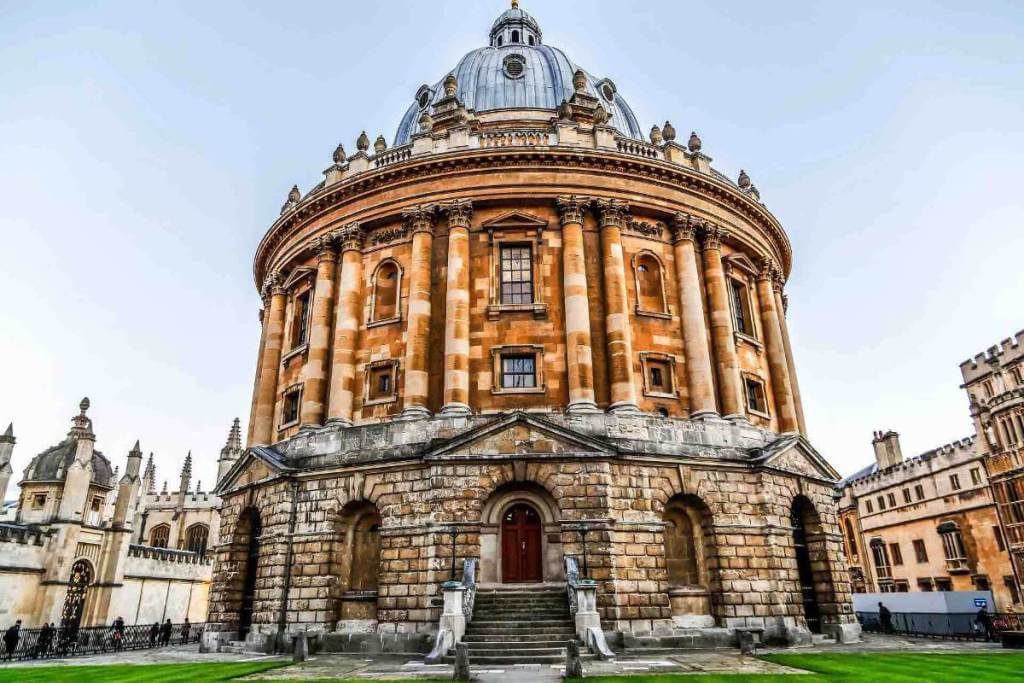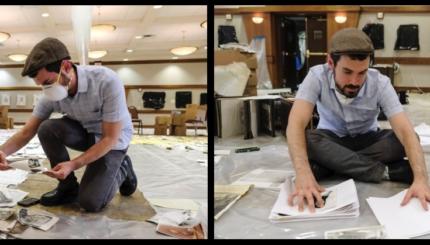England as the Custodian of the Jewish Past: A Series

Only England possesses both the quality and the quantity of Hebrew manuscripts in its library collections. Why is this so? And how did it happen? In this three-part series, historian and self-styled Anglophile Gary A. Rendsburg, who spends almost every summer conducting research in English museums and libraries, will survey all of this material and more, as we proceed through the centuries, from Tudor times to the Victorian age.
Sign up is permitted at any time.
The Bodleian Library, University of Oxford
Sunday December 5, 2021
Thomas Bodley (1545‒1613), fellow of Merton College, scholar of Greek and Hebrew, member of the House of Commons, and gentleman-usher to Her Majesty Queen Elizabeth, founded the Library of the University of Oxford which now bears his name. Bodley set the tone for our subject by donating his own collection of several dozen Hebrew books and manuscripts at the founding of the library. And then the flow of such collections continued for the next few centuries, with Christian Hebraists such as John Selden, Edward Pococke, Robert Huntington, and Benjamin Kennicott donating their exceptional collections, amassed over their lifetimes, to the Bodleian Library. Star attractions include: Maimonides’s own handwritten copy of his Commentary on the Mishna; his personal copy (written by a trusted scribe) of his Mishneh Torah (Code of Jewish Law); and the Kennicott Bible, written in Spain in 1476, the crown jewel of all medieval Jewish manuscripts.
The Cairo Geniza: Discovery and Documents
Sunday December 12, 2021
Starting in the 1880s, medieval documents from an old synagogue in Cairo started finding their way to scholars in England (recall that there was no law governing the transfer of antiquities from one country to another). But the great turning point came in 1896, when the twin sisters Agnes Lewis and Margaret Gibson, a pair of truly extraordinary Victorian women, brought back c. 1000 such documents and shared them with Solomon Schechter, the great Jewish scholar then serving as Reader of Hebrew in Cambridge. Immediately, Schechter himself traveled to Cairo, learned of the source of all these documents, in the Geniza (or storeroom) of the Ben Ezra Synagogue (built c. 850 C.E.), and brought back to Cambridge the remaining 200,000 documents still in place. In the meantime, another c. 40,000 documents made their way to Oxford, London, Manchester, Leeds, and Birmingham. In sum, English libraries together house an astonishing 80% of all Cairo Geniza documents, attracting scholars (including our speaker) to their reading rooms on an ongoing and continual basis.
The British Library and the John Rylands Library
Sunday December 19, 2021
And then there is London! The British Library has its own superb collection of Hebrew and related manuscripts, including documents once in the possession of the Duke of Sussex, son of King George III, the oldest complete copy of the Septuagint (Greek translation of the Bible), and the most ancient and reliable Targum (Aramaic translations of the Bible) manuscripts. Though let’s also not forget the John Rylands Library in Manchester: within its collection are the oldest fragments of the Septuagint, the oldest fragments of the New Testament, and one of the most beautiful of all medieval illuminated Haggadah manuscripts.
These events are at 12 PM PT and 3 PM ET.
The event listed here is hosted by a third party. My Jewish Learning/70 Faces Media is not responsible for its content or for errors in the listing.



